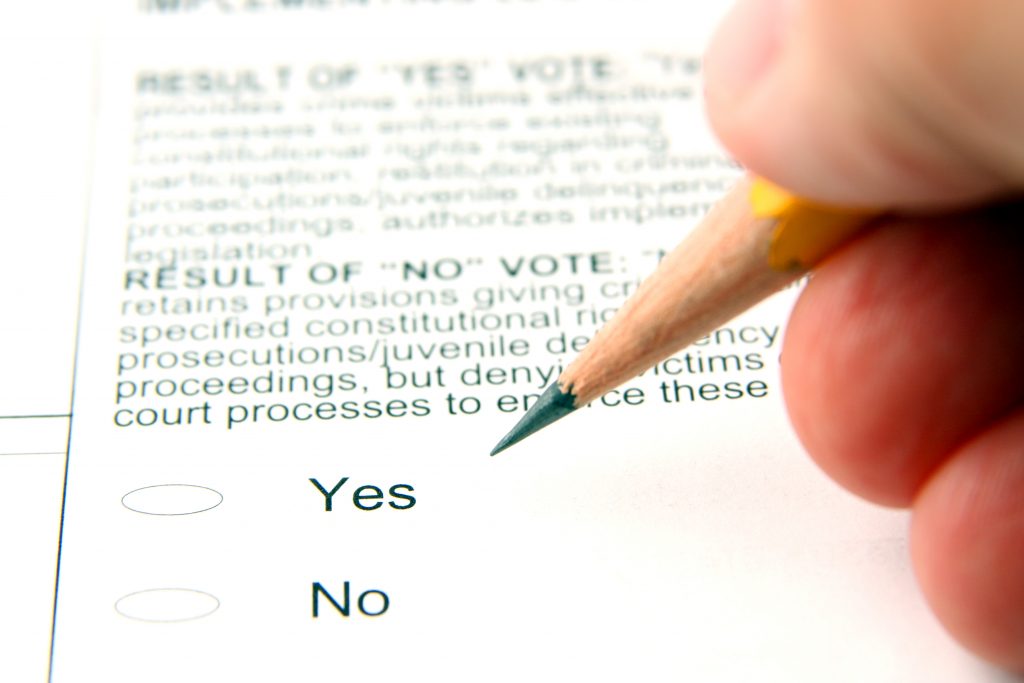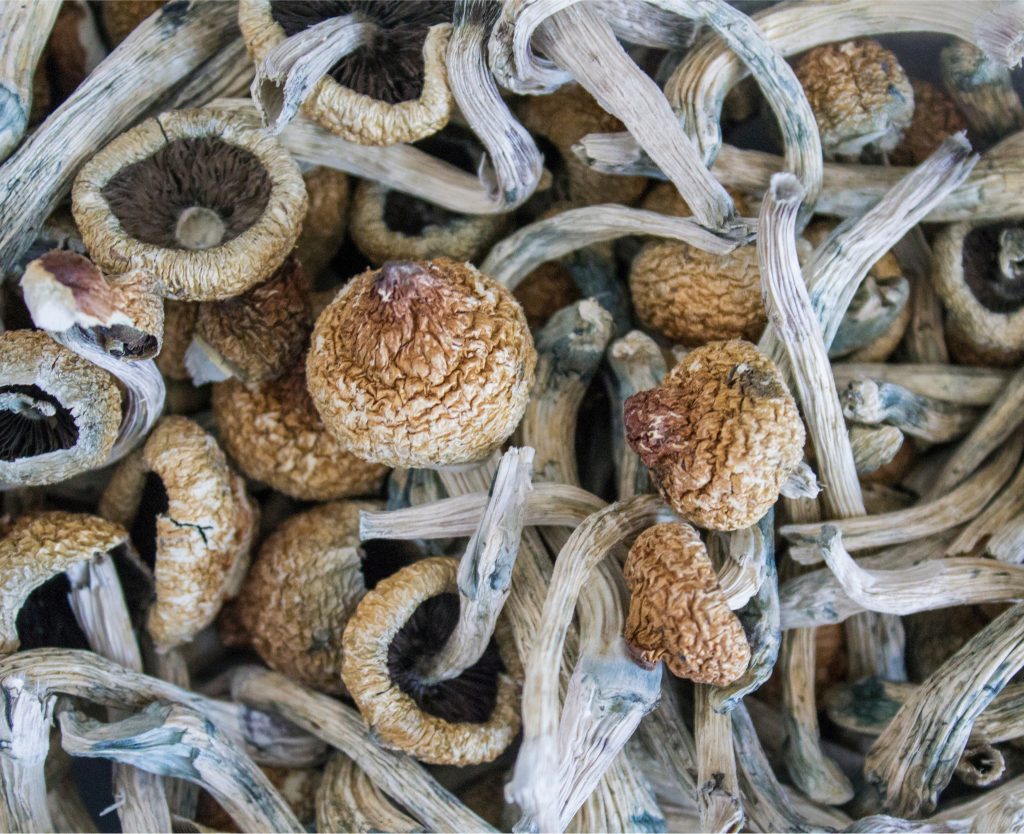It seems that everyone knows about ballot measure 109 and how Oregon became the first state to legalize magic mushrooms in some way. But what exactly this legalization policy is, has been somewhat misinterpreted. Sitting somewhere between a recreational legalization and a medical legalization, Oregon’s newly released magic mushroom draft guidelines provide the first look at what a statewide legalization for psychedelics might entail.
The Oregon draft guidelines for magic mushrooms show that this is not a medical measure, as facilitators have not been specified to have previous medical or therapeutic training. We’ll have to wait a little longer to see if these guidelines are updated, and what else is stipulated. We report on everything important in this growing psychedelics field, and you can keep up by subscribing to The Cannadelics Weekly Newsletter. Get your daily dose of industry news, and be first in line to access new promotions for psychedelic products, as they become available.
Ballot measure 110
At the November 2020 elections, Oregon made history by passing two ballot measures which decriminalized psychedelics for recreational purposes, and which legalized them for certain other uses. While the latter has often been misinterpreted as a medical legalization, new guidelines coming out show that this is not quite the case. The following is a breakdown of the two measures.
Ballot measure 110 wasn’t specifically about psychedelics, but rather a larger drug decriminalization bill which includes psychedelics. Called the Drug Decriminalization and Addiction Treatment Initiative, this measure made it so that personal possession of a controlled substance, without intent to sell, incurs nothing more than a Class E violation, with a maximum fine of $100. It also approved the establishment of drug addiction and treatment programs, with some funding coming directly from cannabis tax revenue and savings made from state prisons.
58.46% of the state’s population voted ‘yes’ to this measure, with 1,333,268 votes. 41.54% voted ‘no’ which accounted for 947,313 votes. This measure essentially reclassifies personal possession offenses for all drugs scheduled I-IV. The Class E violation is a step down from the previous charge of a Class A misdemeanor.

Ballot measure 109
The much more interesting half of this, was ballot measure 109. This measure, called the Psilocybin Mushroom Services Program Initiative approved the creation of a program whereby psilocybin-containing mushrooms – and related products – can be administered to adults of at least 21 years of age. This measure passed with 55.75% of the vote, which accounted for 1,270,057 voters, while 44.25% voted ‘no’, accounting for 1,008,199 votes.
For the most part, this has been touted as a medical legalization, but nothing about the explanation above is geared specifically towards medical use. Part of the confusion is likely based on the fact that when the measure was passed, nothing actually existed, except the directive to open a ‘program’ for the Oregon Health Authority (OHA). The OHA was given two years to do this, and as promised, guidelines for this ‘program’ have started to come out, making clear this is not actually a medical legalization, but hovers somewhere in between medical and recreational.
All that was stated at the time of the vote, was that “clients would be allowed to purchase, possess, and consume psilocybin at a psilocybin service center and under the supervision of a psilocybin service facilitator after undergoing a preparation session.” The OHA is tasked with determining who can access this service, and who cannot, but at no point thus far has it been stipulated that a doctor is needed, a medical setting, or a diagnosis. As the OHA was put in charge of coming out with regulation at the time of passage, it means nothing was understood at that time, about what the final program would entail.
Oregon magic mushrooms guidelines
It’s now getting closer to two years from the time that Oregon passed ballot measure 109, meaning that regulations are due in by the OHA. The program is meant to start in 2023, so hammering out details comes right about now. Whereas this has repeatedly been called a medical legalization, the recent guidelines released point in another direction. Of course, everything released now is just in draft form, so it suffices to say that plenty of updates will be made.
Anyway, the document released in February of the first draft guidelines, only tackles a few subjects, but it gets the conversation going. A conversation that is open to public comment and debate; more information for which can be found here. The document covers mushroom production, mushroom testing, and qualifications for facilitators assisting those taking the mushrooms. For example, while manufacturing requirements don’t allow for GMOs to be used, they also stipulate that only one type of mushroom – Psilocybe cubensis, can be grown.
A lot of other basic things are covered, like licensing, growing conditions, pesticide use, how to store the mushrooms, testing for heavy metals, laboratory requirements, potency testing, and so on. What’s most interesting, however, are the guidelines for those working to assist clients taking the mushrooms, as they say a lot about what this program actually is.

Draft rules for facilitators
Facilitators, according to the draft rules, would be required to complete 120 hours of core training, with a minimum of 25% of those hours for in-person training. This hands-on training (practicum) would be divided into at least 30 hours of direct training, and 10 hours for consultation training, to review the prospective facilitator’s progress. Those interested in being facilitators must fill out an application and give a non-refundable fee of $500, (which is a questionable amount if applicants are turned away easily).
Training modules that prospective facilitators must undergo include: 1) Historical, Traditional, and Contemporary Practices and Applications; 2) Cultural Equity in relation to Psilocybin Services; 3) Safety, Ethics and Responsibilities; 4) Psilocybin Pharmacology, Neuroscience, and Clinical Research; 5) Core Facilitation Skills; 6) Preparation and Orientation; 7) Administration; 8) Integration; and 9) Group Facilitation.
The training curriculum outlined is geared toward a “nondirective facilitation approach”, which essentially means the facilitator is not meant to give advice or interpretations while the client is in a trip. This is similar to psychedelic-assisted therapy, where the doctor helps the client through the experience, but only gives insight afterwards, in what is called the ‘integration’ phase. This current model does include ‘integration’ of some kind (as per the training), but since the facilitators aren’t required to have real medical or therapeutic training, they realistically will not be able to give therapy. This makes the whole thing sound that much more like a recreational legalization.
How inclusive Oregon plans on having the ‘integration’ part is hard to say, but it could open up a lot of legal problems to allow non-medical or non-licensed facilitators, to give therapy. Without the ability to give therapy, or have it based on a medical/therapy model, it also rules out the denial of services to clients for not having a medical issue. Client draft regulations have yet to be released, so how exactly each case is going to be evaluated for acceptance or denial is currently impossible to say. However, considering the minimum degree to give therapy in the US, is a Master’s degree, if Oregon wants facilitators to give any kind of medical therapy to clients, it will certainly have to ask way more of them. Otherwise, a facilitator is no more than a trained babysitter, for a recreational trip.
Psychedelics today
Psychedelics, originally illegalized in the late 1960’s and early 1970’s in America, have been making quite the comeback of late, with ballot measure 109 in Oregon legalizing some sort of use of magic mushrooms. This has kicked off a growing interest in decriminalizing and legalizing different psychedelic drugs throughout the country.
Currently, several locations have decriminalization measures. These include Denver, Colorado; Oakland, Santa Cruz, and Arcata in California; Ann Arbor, Washtenaw County, and Detroit, Michigan; Washington, DC; Somerville, Cambridge, Northampton, and Easthampton in Massachusetts; and Seattle, Washington.

Apart from these individual locations, and their decriminalization policies, several states have introduced legislation to legalize recreational use of some kind throughout the state. These include California, Washington, and Michigan. While these states all have bills around magic mushrooms, or entheogenic plants (psychedelic plants), Colorado just passed a bill that will legalize the synthetically made MDMA when a federal legalization comes out, but rejected a bill that would investigate the naturally occurring psilocybin and DMT.
It has been said however, that the rejection of the latter bill was at the behest of its sponsor, who instead wants to focus on a possibly upcoming psychedelics reform ballot measure, which would be much farther-reaching. In terms of how gung-ho the state is for MDMA, the bill to allow for prescriptions when it becomes federally legal, passed 11-0.
On a federal level, the government quietly legalized esketamine in 2019. Esketamine is a half-brother to ketamine, which itself enjoys growing popularity as a gray-market drug, where its prescribed in clinics for the off-label uses of psychological issues and pain. Plus, the FDA gave ‘breakthrough therapy’ designations to three companies currently studying MDMA and psilocybin: MAPS, COMPASS Pathways, and Usona Institute, signaling impending upcoming federal legalizations for both of those compounds.
Conclusion
The Oregon draft guidelines for magic mushrooms start to answer some questions, while raising many more. How much therapy will be given? Will facilitators have a further requirement for a certain level of education in order to apply? And where is this legalization really on the scale of medical to recreational? I guess we’ll have to wait a little longer until new draft guidelines come out, to get any further answers.
Welcome readers! Thanks for stopping by CBDtesters.co, your #1 internet portal for current and thought-provoking independent coverage of cannabis and psychedelics-related news. Join us daily to keep informed on the exciting universe of cannabis and psychedelics, and sign up for The Cannadelics Weekly Newsletter, so you never miss an important story.









